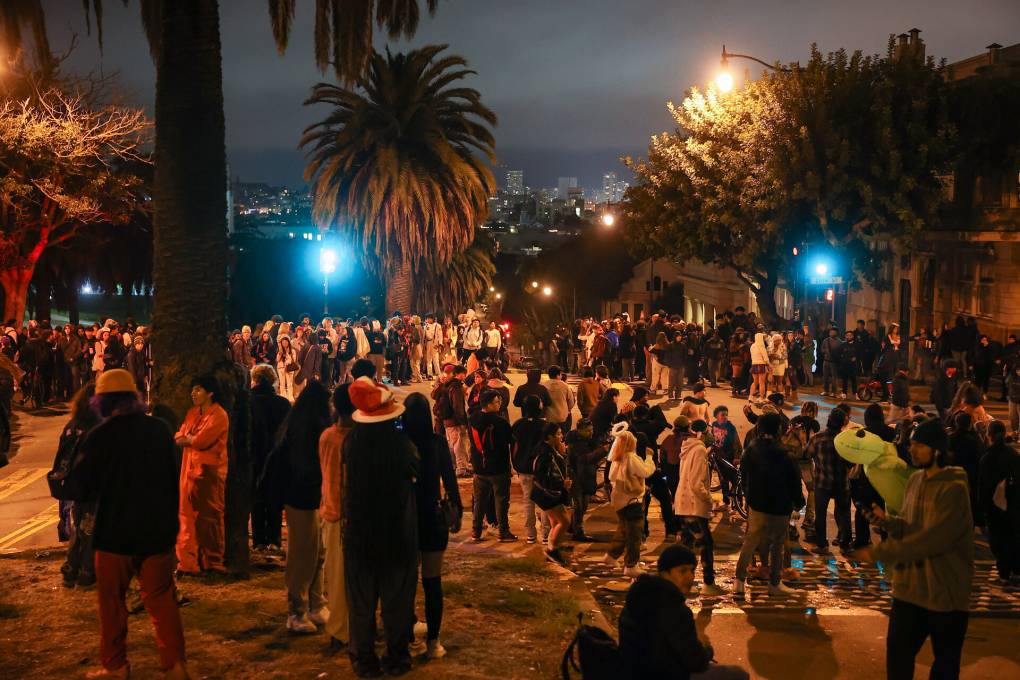Introduction :
Proposition E, also known as the “Police Department Policy and Procedure Charter Amendment,” seeks to amend the city’s charter to require that any changes to the SFPD’s policy and procedures be approved by the Board of Supervisors or through a public vote. This marks a significant departure from the current practice, where the police chief has the authority to unilaterally amend department policies.In the heart of San Francisco’s political landscape, a heated clash has erupted between Twitter CEO Jack Dorsey and the American Civil Liberties Union (ACLU) over Proposition E. This ballot measure is poised to put the San Francisco Police Department’s (SFPD) policy under public scrutiny and a decisive vote. The collision of interests between tech mogul Dorsey and the civil liberties watchdog ACLU underscores the gravity of the proposed policy changes and their implications for the city’s law enforcement practices.
Background of Prop. E and its Origin : Dorsey
The genesis of Prop. E can be traced back to growing concerns over police accountability and transparency in San Francisco. In recent years, incidents of police misconduct and excessive use of force have sparked outrage and calls for reform within the community. Prop. E emerged as a grassroots effort to empower the public and hold law enforcement accountable.
Key Stakeholders Involved in the Clash
The clash over Prop. E involves various stakeholders with vested interests in the outcome. On one side are advocates for police reform, including community activists, civil rights organizations, and social justice advocates. On the opposing side are proponents of maintaining the current system, including law enforcement unions, conservative groups, and some city officials.
Arguments in Favor of Prop. E
Supporters of Prop. E argue that it is essential for promoting transparency, accountability, and community oversight of law enforcement. By subjecting SFPD policy changes to public scrutiny and approval, Prop. E aims to ensure that the department’s practices align with the values and needs of the community it serves.
Arguments Against Prop. E
Opponents of Prop. E contend that it undermines the authority and expertise of law enforcement professionals in making operational decisions. They argue that subjecting police policy to public vote could lead to politicization of law enforcement and hinder the department’s ability to adapt to evolving challenges and circumstances.
The Role of ACLU in the Clash : Dorsey
The American Civil Liberties Union (ACLU) has emerged as a prominent player in the clash over Prop. E. As a longstanding advocate for civil rights and police reform, the ACLU has thrown its support behind the initiative, arguing that it is a crucial step towards promoting accountability and restoring public trust in law enforcement.
Twitter CEO Jack Dorsey’s Stance on Prop. E
Twitter CEO Jack Dorsey has publicly voiced his support for Prop. E, citing the importance of democratic oversight and community involvement in shaping police policy. Dorsey’s endorsement has brought national attention to the issue and added momentum to the campaign in favor of Prop. E.
Impact of Prop. E on SFPD Policy
If passed, Prop. E would significantly alter the dynamics of policymaking within the SFPD. It would require greater transparency and public input in decision-making processes, potentially leading to more inclusive and community-centered approaches to law enforcement.
Potential Consequences of Passing or Rejecting Prop. E
The outcome of the clash over Prop. E will have far-reaching implications for the future of policing in San Francisco. Passing the measure could signal a historic shift towards greater accountability and civilian oversight, while rejecting it could reinforce the status quo and deepen existing divides within the community.
Public Opinion and Response to the Clash
Public opinion on Prop. E remains divided, reflecting the broader debate over police reform and social justice. While some residents view it as a necessary step towards meaningful change, others express concerns about its potential impact on law enforcement operations and effectiveness.
Legal Implications and Challenges Surrounding Prop. E
The legal validity of Prop. E has been subject to scrutiny, with opponents raising questions about its constitutionality and potential conflicts with state law. The measure is likely to face legal challenges regardless of the outcome, adding another layer of complexity to the ongoing clash.
The Importance of Transparency : Dorsey
Irrespective of the fate of Prop. E, the clash has underscored the importance of transparency, accountability, and community engagement in shaping policing practices. Building trust between law enforcement agencies and the communities they serve is essential for fostering safer and more equitable societies.
Strategies for Addressing Police Reform Beyond Prop. E
Beyond the debate over Prop. E, there is a pressing need for comprehensive and holistic approaches to police reform. This includes investing in community-based alternatives to traditional policing, implementing de-escalation training for officers, and addressing systemic issues such as racial bias and inequality.
The Origins of Prop. E
Proposition E emerged from grassroots movements advocating for police reform in response to widespread concerns about racial bias, excessive force, and accountability within the SFPD. The proposition seeks to overhaul existing policies governing police conduct, emphasizing transparency, community oversight, and accountability mechanisms.
Dorsey’s Perspective
Jack Dorsey, a prominent figure in Silicon Valley and CEO of Twitter, has thrown his weight behind Proposition E, endorsing its objectives of reforming law enforcement practices. Dorsey’s advocacy for the proposition aligns with his broader efforts towards social justice and accountability in governance institutions.
ACLU’s Critique
Conversely, the ACLU has raised significant concerns about the potential ramifications of Proposition E on civil liberties and due process. While acknowledging the need for police reform, the ACLU contends that certain provisions within the proposition could undermine fundamental rights and procedural safeguards.

Public Opinion Dynamics
The clash between Dorsey and the ACLU reflects broader divisions within San Francisco’s diverse populace regarding the appropriate balance between law enforcement effectiveness and civil liberties protections. Public opinion polls suggest a split consensus, with constituents grappling with the complexities of police reform in an era of heightened scrutiny and activism.
Implications for SFPD Policy
At the heart of the debate lies the future trajectory of SFPD policy and its alignment with evolving societal expectations and legal standards. The outcome of Proposition E could set a precedent for other municipalities grappling with similar issues, shaping the landscape of law enforcement practices nationwide.
Potential Outcomes
The resolution of the Dorsey-ACLU clash over Proposition E remains uncertain, with both sides mobilizing resources and rallying support for their respective positions. The ballot measure’s fate hinges on voter turnout, campaign strategies, and the ability of stakeholders to articulate compelling narratives that resonate with the electorate.
Navigating the Legal Terrain
Proposition E’s journey through the legal and regulatory framework underscores the intricate interplay between grassroots activism, legislative processes, and judicial oversight. Legal challenges, amendments, and public hearings have shaped the proposition’s evolution, highlighting the complexities of enacting meaningful reform within established institutions.
Community Engagement Strategies : Dorsey
Both proponents and opponents of Proposition E have engaged in extensive outreach efforts to sway public opinion and mobilize support for their cause. Community forums, social media campaigns, and grassroots organizing have become battlegrounds for competing narratives and mobilization tactics.
Challenges Ahead
Despite the fervent advocacy and mobilization efforts on both sides, significant challenges lie ahead in achieving consensus on police reform. Bridging ideological divides, addressing systemic inequities, and fostering constructive dialogue are essential prerequisites for meaningful progress in enhancing law enforcement accountability and community trust.
The Road Ahead
As San Francisco prepares to cast its votes on Proposition E, the city stands at a crossroads, poised to chart a course towards a more equitable, transparent, and accountable policing paradigm. The outcome of this contentious debate will reverberate far beyond the city limits, shaping the contours of law enforcement policy and civil liberties discourse for years to come.
FAQs :
What is Proposition E, and why is it significant?
Proposition E is a ballot measure in San Francisco aimed at reforming SFPD policy, with implications for law enforcement practices and civil liberties.
What are Jack Dorsey’s views on Proposition E?
Jack Dorsey, CEO of Twitter, supports Proposition E as a means of advancing police reform and accountability.
What concerns does the ACLU have about Proposition E?
The ACLU raises concerns about potential infringements on civil liberties and due process rights embedded within Proposition E.
How does public opinion influence the outcome of Proposition E?
Public opinion dynamics, shaped by diverse perspectives and advocacy efforts, play a crucial role in determining the fate of Proposition E at the ballot box.
What legal challenges has Proposition E faced?
Proposition E has encountered legal challenges, amendments, and regulatory hurdles, reflecting the complexities of enacting substantive reform within established legal frameworks.
What strategies are employed by stakeholders to mobilize support for Proposition E?
Stakeholders utilize various strategies, including community engagement, social media campaigns, and grassroots organizing, to mobilize support for their positions on Proposition E.
Conclusion:
The clash over Prop. E reflects deeper tensions and divisions within society regarding the role and function of law enforcement. Resolving these conflicts requires a concerted effort to bridge differences, foster dialogue, and work towards common solutions that prioritize the safety and well-being of all community members.The clash between Dorsey and the ACLU over Proposition E underscores the multifaceted nature of debates surrounding police reform and civil liberties. As San Francisco grapples with this pivotal decision, the city confronts fundamental questions about the nature of policing, accountability, and democratic governance. Whatever the outcome, Proposition E’s legacy will endure as a testament to the enduring struggle for justice, equity, and social change.









